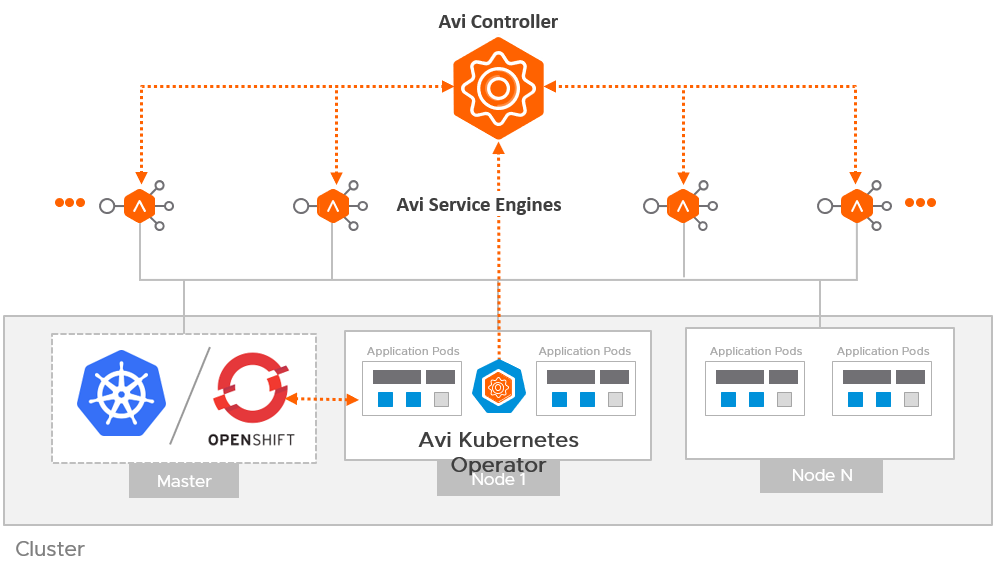Avi Kubernetes Operator
Overview
The Avi Vantage platform integration with OpenShift/Kubernetes provides a redesigned architecture involving a new operator called Avi Kubernetes Operator (AKO). The following illustration outlines the components of the Avi Kubernetes integration.

Avi Kubernetes Operator (AKO)
AKO is an operator which works as an ingress controller and performs Avi-specific functions in an OpenShift/Kubernetes environment with the Avi Controller. It runs as a pod in the cluster and translates the required OpenShift/Kubernetes objects to Avi objects and automates the implementation of ingresses/routes/services on the Service Engines (SE) via the Avi Controller.
The Avi Controller
The Avi Controller provides the central control, management, and observability functions in the Avi architecture. It manages the lifecycle of the Service Engines, their configurations, and provides centralized analytics and observability.
The Avi Service Engines (cluster-external)
The Avi Service Engines are the data-plane engines that implement the virtual services for Kubernetes ingresses. These SEs handle all the data plane responsibilities in the platform.
The following table provides a comprehensive list of documentation for the Avi OpenShift/Kubernetes integration using AKO:

